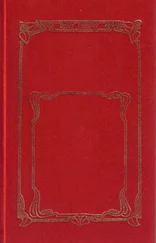Эдит Несбит - The Prophet's Mantle
Здесь есть возможность читать онлайн «Эдит Несбит - The Prophet's Mantle» — ознакомительный отрывок электронной книги совершенно бесплатно, а после прочтения отрывка купить полную версию. В некоторых случаях можно слушать аудио, скачать через торрент в формате fb2 и присутствует краткое содержание. Издательство: Иностранный паблик, Жанр: foreign_prose, foreign_antique, на английском языке. Описание произведения, (предисловие) а так же отзывы посетителей доступны на портале библиотеки ЛибКат.
- Название:The Prophet's Mantle
- Автор:
- Издательство:Иностранный паблик
- Жанр:
- Год:неизвестен
- ISBN:нет данных
- Рейтинг книги:5 / 5. Голосов: 1
-
Избранное:Добавить в избранное
- Отзывы:
-
Ваша оценка:
- 100
- 1
- 2
- 3
- 4
- 5
The Prophet's Mantle: краткое содержание, описание и аннотация
Предлагаем к чтению аннотацию, описание, краткое содержание или предисловие (зависит от того, что написал сам автор книги «The Prophet's Mantle»). Если вы не нашли необходимую информацию о книге — напишите в комментариях, мы постараемся отыскать её.
The Prophet's Mantle — читать онлайн ознакомительный отрывок
Ниже представлен текст книги, разбитый по страницам. Система сохранения места последней прочитанной страницы, позволяет с удобством читать онлайн бесплатно книгу «The Prophet's Mantle», без необходимости каждый раз заново искать на чём Вы остановились. Поставьте закладку, и сможете в любой момент перейти на страницу, на которой закончили чтение.
Интервал:
Закладка:
Strangely enough, another cause of dissension between the brothers had been also touched on by their critics in the tap of the Spotted Cow: Alice Hatfield. When Mrs. Ferrier had died Mrs. Hatfield had been foster-mother to the two boys, and during their childhood they were the constant playfellows of little Alice. Of course as they grew older the distance between them increased, but Richard was still very fond of Alice, and it was a great blow to him when one day, about three months after their return from college, the girl suddenly disappeared, taking leave of no one, and leaving no word of explanation. All that anyone could gather was that during a visit she had recently paid to an aunt in Liverpool she had been seen to talk more than once to a gentleman, and that she had left the Firth Vale Station for Manchester by an early train alone. But the worst of it was that Roland had that very day abruptly announced his intention of taking a holiday, and had gone North without any apparent object; and village gossip busied itself rarely with this portentous coincidence. At the end of a month Roland returned, looking worn and harassed. His brother asked him point blank where he had been, and for what. Roland indignantly denied his right to question, and flatly refused to answer. A quarrel ensued—the first of many, which grew more frequent as they saw more of Miss Stanley.
On the morning on which Mr Ferrier died, she and her father had gone to London to spend a month; and the time of her absence was the most peaceful the young men had known for some time.
Clare herself was glad to go to London, though not so glad to leave the scene of her conquests. One cannot blame her much for knowing that she was charming. The two Ferriers were the most desirable young men the country-side could offer, and no girl could have wished a finer pair of captives to grace her chariot-wheels. And—Aspinshaw was very dull.
CHAPTER IV.
A MYSTERIOUS DISAPPEARANCE
WHEN Miss Stanley opened her hazel eyes the morning after the mischance on the way home from the theatre, her first waking impression was that something pleasant was to happen. She laughed at herself a little when complete wakefulness made her conscious that, after all, it was only Count Litvinoff's acquaintance and promised call which were answerable for that dreamy feeling of anticipated enjoyment.
She let her thoughts stray in his direction several times that day, and at the table d'hôte looked out for him with interest. But he was not there. Bearing in mind Mr Stanley's invitation, Count Michael Litvinoff had thought it as well to absent himself from the table d'hôte . It would have been rather awkward to meet his new acquaintances at dinner and then to call on them immediately afterwards.
'I don't see our Russian friend, Clare,' remarked Mr Stanley as the fish was removed. 'I think you must have been mistaken about his staying here.'
'Perhaps I was, papa,' said Clare, submissively, but with a sparkle in her eyes that contradicted her words. 'Or perhaps his foot hurt him so much that he couldn't come down.'
'If he doesn't come up after dinner we'd better make inquiries.'
But he did come up after dinner, and when he entered, limping slightly, Mr Stanley received him with as much effusion as could be shown by an old gentleman after a heavy meal.
'My daughter tells me you are staying in this hotel,' he began; and as Litvinoff, taking this as an introduction, bowed low to her, with his eyes on the ground, she hoped he did not notice the sudden flush that swept over her face. But he did; there was, in fact, very little that went on within a dozen yards of him that Count Litvinoff did not notice.
'How strange that you should have been on the spot last night, and how fortunate.'
'It was fortunate for me, since it has procured for me this pleasure. May I hope that you are not any the worse for the shock?'
'No, I'm not; but I'm afraid you are; do sit down.'
As Litvinoff and her father went on talking, Clare, who had not yet spoken a word, could not help thinking that this gentleman with the foreign name was somehow very different from any man she had hitherto met, not even excepting those fine specimens of young English manhood, the Ferriers. There was about him that air of worldliness which is so attractive to young people. 'He looks as if he had a history,' she said to herself, with conviction; a remark which did credit to her powers of observation. She liked his voice and his way of speaking, for though his English was perfect, he spoke it with a precision not usual to Englishmen.
'Will you have tea or coffee?' asked Clare presently, busying herself with the cups and saucers that had been brought in.
'Mr Litvinoff will have coffee, of course, my dear; young men don't like tea nowadays.'
'I can't claim to be very young,' said the other, smiling, 'but I do like tea.'
'Ah! you would just please my wife; she says that a liking for tea in a young man is a sign of a good moral disposition.'
'I'm afraid in my case it's national instinct, not moral beauty.'
'National!' repeated Mr Stanley, 'national! Why, God bless my soul, you aren't Chinese, are you?'
The guest threw his head back and laughed unaffectedly; and Clare smiled behind the tea-tray.
'Oh, no; I'm only a Russian.'
'Oh, ah,' said Mr Stanley, in a rather disappointed tone. For the moment he had been quite pleased at the thought that here was actually a Chinese who could talk excellent English, and whose garments were not exactly the same, to the uninitiated, as those of his wife and mother.
'You speak English uncommonly well,' he went on.
'Well, I've been in England some years now,' he said, with a rather sad smile, which confirmed Clare in that fancy about his history. 'A turn for languages is like the taste for tea, one of our national characteristics. I suppose the ordinary tongue finds such a difficulty in twisting itself round Russian, that if it can do that it can do anything. Allow me!' springing forward to hand Mr Stanley his cup of coffee.
'My daughter always sings to me while I'm having my coffee,' said Mr Stanley, suppressing the fact that under these circumstances he generally went to sleep, and feeling a mistaken confidence, as slaves of habit always do, that his ordinary custom could be set at nought on the present occasion.
'I hope Miss Stanley will not deny me the privilege of sharing your pleasure,' said Litvinoff, rising and making for the piano. Clare followed him.
'What shall I sing, papa?' she said.
'Whatever you like, my dear. "The Ash Grove."'
Clare sang it. Her voice was not particularly powerful, but she made the most of it, such as it was, and sang with enough expression to make it pleasant to listen to her. After 'The Ash Grove' came one or two plaintive Scotch airs, and before she was well through 'Bonnie Doon,' the accompaniment of her father's heavy breathing made her aware that her audience was reduced by one-half. The most appreciative half remained, and, when the last notes of the regretful melody had died out, preferred a request for Schubert's 'Wanderer.' This happened to be her favourite song, and she sang it con amore .
'It always seems to me,' he said when she had finished, 'that that music carries in it all the longing that makes the hearts of exiles heavy.'
Clare looked up at him brightly. 'Oh, but their hearts ought not to be heavy, you know,' she said. 'The Revolution is of no country—I thought banishment from one country ought merely to mean work in another for an exile for freedom. Surely there is a fight to be fought here in England, for instance, too. I don't know much about it; I've scarcely seen anything, but it seems to me there is much to be put straight here—many wrongs to be redressed, much misery to be swept away.'
Читать дальшеИнтервал:
Закладка:
Похожие книги на «The Prophet's Mantle»
Представляем Вашему вниманию похожие книги на «The Prophet's Mantle» списком для выбора. Мы отобрали схожую по названию и смыслу литературу в надежде предоставить читателям больше вариантов отыскать новые, интересные, ещё непрочитанные произведения.
Обсуждение, отзывы о книге «The Prophet's Mantle» и просто собственные мнения читателей. Оставьте ваши комментарии, напишите, что Вы думаете о произведении, его смысле или главных героях. Укажите что конкретно понравилось, а что нет, и почему Вы так считаете.











